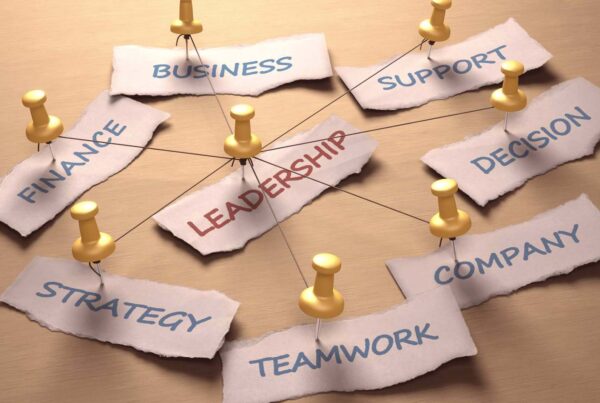There are several factors that can help you move from competence to confidence, and the first one on the list includes developing working relationships. Effective relationship mapping helps to identify who knows you and what they say about you to other people. Things we are known for (reputation) and our informal network can make or break one’s confidence and career. By understanding this, people begin to think about who in their circle is already known for those traits, so they can look to them as a role model.
The Benefits of Networking
Nurturing good relationships can help you build your personal brand, and effective networking can boost your career options and confidence. Establish mutually-beneficial relationships with colleagues, peers who encourage and support you, managers who push you, team members who challenge you, and others you trust to be honest with you.
The three elements of networking include:
- Information – networking involves collecting and sharing information.
- Power – strong relationships can provide impetus and resources.
- Opportunity – looking for new ways to grow and show your work instead of expecting others to notice you.
As your situation changes, your personal mix of information, power, and opportunity (IPO) will also shift during your career, so give your best to maintain the right balance.
How to Build Your Network
Sitting with people you know and going to the same events is not networking but socializing. Networking is about talking to a variety of people you haven’t met before and trying new experiences. To build your network, you should:
- Think about which one of your skills needs improving
- Find experts in those fields around you and set up meetings to connect and share information (it’s as simple as having coffee or lunch with them)
- Talk about your skills and offer them something in return
- Cultivate ongoing connections – don’t wait until an issue arises to turn to networking
Furthermore, you should understand that you can’t do everything yourself because it will wear you down. Learn to delegate in order to create time to work on your network. As you progress and move up into senior positions, your role should be less operational and more strategic. Of course, delegation requires a great deal of trust.
How you see yourself is another one of your important working relationships. Your presence is a sum of your appearance, communication, and a sense of authority. Be open for communication, welcome diversity, take responsibility for your actions and words, and respect the people you work with by valuing their ideas and input. This will help you build your integrity, and people will see you as an effective and trusted person, as well as someone they want to be around. In turn, it will build your confidence, improve your sense of self-worth, and bring more opportunities for you to shine. Finding a mentor is another important relationship you can foster because a mentor can provide his objective opinions and help you navigate your company’s culture better.
Mind that the line between confidence and arrogance is thin. You don’t want to lack confidence or be overconfident. Overconfidence can cause you to take on projects that you might not be able to complete due to a lack of abilities.
Discover the best way to build your confidence through networking and healthy workplace relationships. Call me for some complimentary advice. Book an appointment with me at https://go.oncehub.com/GregNichvalodoff or call me at +1 (604) 943-0800.









